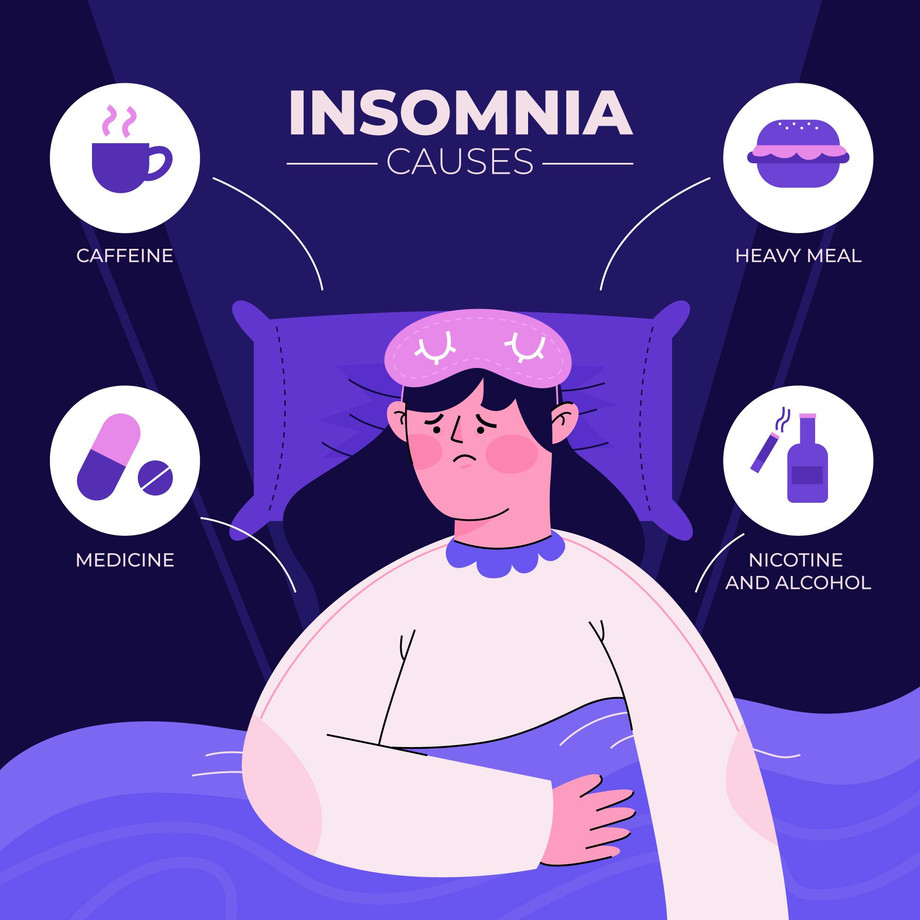Why Am I So Tired but Still Can’t Sleep? Find Out the Hidden Causes Behind Sleepless Nights
Understanding the Disconnect Between Fatigue and Sleep
After a long, stressful day, your body feels exhausted. You slip into bed expecting sleep to come instantly—but instead, your mind races, your heart pounds, and your rest remains elusive. If you’ve ever asked yourself, “Why can’t I sleep even though I’m tired?”, you’re not alone.
At Yu Therapy, we’ve worked with countless individuals facing this exact issue. The root cause? Fatigue alone doesn’t guarantee rest. Let’s dive into the most common psychological and physiological reasons you may struggle to sleep despite overwhelming tiredness.
Your Mind Is Still Running on Overdrive
Mental overactivity is one of the most underestimated causes of insomnia. Even when your body is begging for rest, your brain might still be busy processing:
-
The day's events
-
Unfinished tasks
-
Emotional conversations
-
Worries about tomorrow
This cognitive clutter keeps your brain in a state of alertness. You're essentially trying to sleep with your mind still at full throttle.
Pro Tip: Begin a nightly journaling practice. Writing down your thoughts before bed offloads mental tension and helps signal your brain that it's time to wind down.
The Vicious Cycle of Sleep Anxiety
Sleep anxiety is another common culprit. The more you want to sleep, the harder it becomes. Thoughts like:
-
“I have to fall asleep or tomorrow will be awful.”
-
“Why can’t I sleep like normal people?”
-
“Something must be wrong with me.”
This self-imposed pressure creates performance anxiety, which in turn activates your sympathetic nervous system—the exact opposite of what your body needs to sleep.
If this resonates, anxiety therapy in PJ can be a transformative step. Addressing the root cause of sleep-related stress helps break the anxiety-insomnia cycle for good.
A Dysregulated Nervous System Sabotages Your Rest
Your body may be biologically tired, but if your nervous system is dysregulated, you won’t reach the relaxation needed for deep sleep.
Common signs include:
-
A racing heart as you lie down
-
Sudden muscle jerks or twitches
-
A floating sense of unease or agitation
This state is often the result of chronic stress, past trauma, or prolonged anxiety. Your system remains in fight-or-flight mode, even in the quiet of your bedroom.
Try This: Practice grounding techniques or look into sleep hypnosis near me. These methods gently guide the nervous system from alertness to rest.
Poor Sleep Hygiene Could Be Holding You Back
Sleep hygiene isn’t just a buzzword—it’s a blueprint for sustainable, restful sleep. Bad bedtime habits may send your internal clock spiraling.
Watch out for:
-
Caffeine consumption after 2 PM (yes, even chocolate counts)
-
Inconsistent sleep-wake cycles
-
Late-night exposure to blue light from screens
-
Lack of a wind-down ritual before bed
Melatonin, your sleep hormone, is easily suppressed by artificial light and stimulation. Even if your body is tired, your brain won’t get the memo without the right cues.
Replace your screen time with soft lighting, relaxing music, or a warm shower to help your body shift into a sleep-ready state.
Underlying Mental Health Conditions
Anxiety, depression, and burnout are deeply linked with sleep disturbances. If you experience:
-
Persistent overthinking
-
Emotional exhaustion
-
Low mood or irritability
...you may also find it hard to sleep—even when desperately tired. And the worst part? Lack of sleep amplifies these issues, creating a negative feedback loop.
Support from professionals offering anxiety therapy in PJ or trauma-informed care is critical for disrupting this pattern. The right therapeutic approach helps restore emotional equilibrium, which naturally improves sleep.
Immediate Steps to Help You Sleep Tonight
Struggling with sleepless nights? Here’s what you can do tonight:
-
Stick to a fixed bedtime and wake-up time, even on weekends
-
Cut caffeine and screen exposure 2 hours before bed
-
Create a soothing wind-down routine with light stretching, lavender oil, or calming music
-
Journal or meditate to clear mental clutter
-
Explore therapy or sleep hypnosis for lasting, root-level change
These small but powerful actions can rewire your habits and nudge your brain and body toward rest.
Therapy as a Path to Restful Sleep
At Yu Therapy, we view sleep problems not in isolation, but as part of a bigger picture involving mental health, emotional balance, and trauma healing. Our holistic approach helps clients across Petaling Jaya, Puchong, and Shah Alam understand what’s really keeping them awake.
Whether it's sleep anxiety, stress overload, or nervous system dysregulation, we’re here to provide personalized care and evidence-based solutions.
Sleep is not a luxury—it’s a necessity. And it starts with addressing the hidden causes beneath your restlessness.
Ready to Reclaim Your Rest?
Don’t let another night slip by in frustration. If you're searching for anxiety therapy in PJ, curious about sleep hypnosis, or simply need support on your healing journey—Yu Therapy is here to guide you.
You deserve deep, uninterrupted sleep. Let us help you find it again.


Comments
Post a Comment